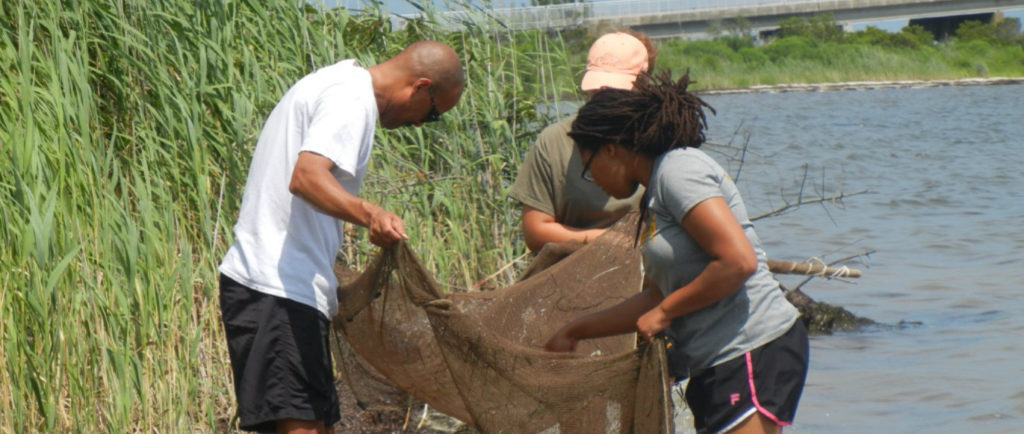
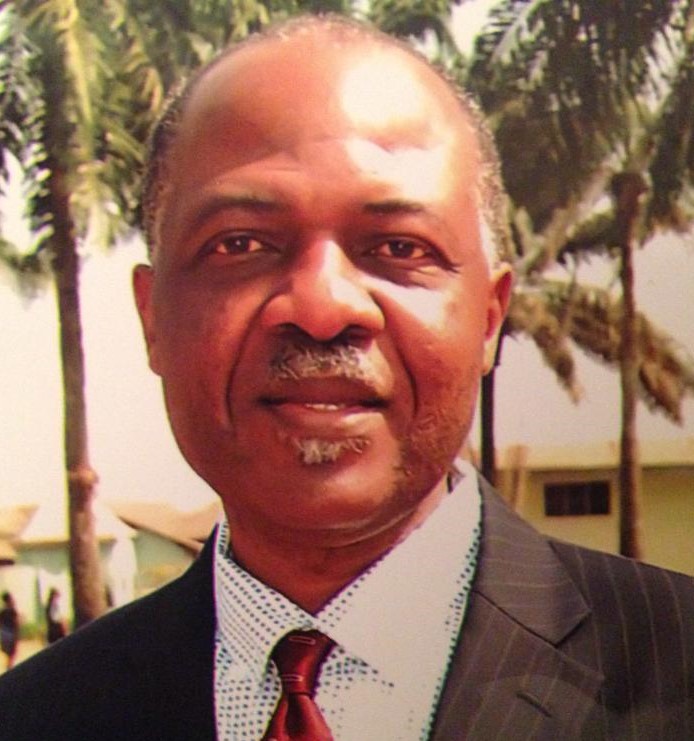
Paulinus Chigbu, Ph.D.
Professor of Fisheries Science and LMRCSC Director
Bio: Dr. Chigbu has been Director of the LMRCSC since 2006. He received his B.S. (Honors) and M.S. degrees in Zoology (concentration in Hydrobiology) from the University of Benin, Nigeria and his Ph.D from the University of Washington School of Fisheries. Since coming to UMES, he has established numerous programs for research and education in the marine sciences which he also directs, including the NSF CREST Center for the Integrated Study of Coastal Ecosystem Processes and Dynamics in the Mid-Atlantic Region (CREST-CISCEP) and a NSF Research Experiences for Undergraduates site in Marine and Estuarine Science. He is also Director of the NSF-funded Professional Science Masters program in Quantitative Fisheries and Resource Economics at UMES. Dr. Chigbu’s primary research interests are: fisheries and zooplankton ecology, particularly the influence of variations in climatic factors on water quality and biota, and trophic dynamics in marine and freshwater environments.
Curriculum Vitae
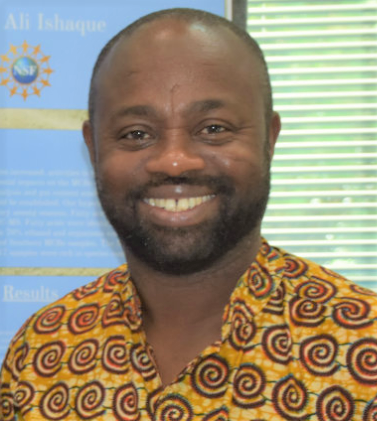
Ali Ishaque, Ph.D
Professor, Environmental Toxicology
Bio: Dr. Ishaque’s research interests are: identifying molecular biomarkers for contaminant exposure and the effects of mixtures of chemical stressors (non-essential metals and stable xenobiotics) on ecosystems. He holds a Ph.D in Ecotoxicology and a M.S. degree in Marine Ecology from the Free University of Brussels, Belgium and a B.S. in Chemistry from the University of Science and Technology, Ghana.
Curriculum Vitae
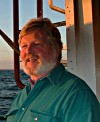
Eric May, Ph.D.
Professor, Fish Biology and Pathology
Bio: Dr. May’s research interests are the use of biochemical and metabolic indicators to determine the response of fish to injurious agents or conditions, establishment of clinical methods as a means of non-lethal testing of wild and cultured stocks, the effects of environmental damage on resident aquatic organisms and application of fish health management approaches for use in aquaculture and wild stocks. Dr. May received his Ph.D from Oregon State University in Biochemistry, Pathology and Microbiology. He also completed his B.S. in Zoology at OSU, with a minor in fisheries. His M.S. from Northern Arizona University was in Cell Biology and Parasitology.
Website
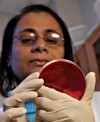
Salina Parveen, Ph.D.
Professor, Food and Environmental Microbiology; Seafood Safety
Bio: Dr. Parveen holds a B.S. in Botany and an M.S. in Microbiology from the University of Dhaka, Bangladesh and a Ph.D. in Food Science and Human Nutrition, specializing in Microbiology and Molecular Biology from the University of Florida, FL. She teaches graduate level courses in Microbiology and Toxicology. Her research interests are Food and Environmental Microbiology, Food Safety, and Water Quality. Dr. Parveen has received several awards including Chancellor Award, Govt. of Bangladesh, and Book Award, Dhaka University, for securing first class position in B.S, Dhaka University merit scholarship for outstanding achievement in undergraduate and graduate studies, and outstanding new faculty award, School of Agricultural and Natural Sciences, UMES. In addition, she served as an invited review panelist for NOAA/UNH, USDA and Water quality and Health Bureau, Health Canada. Furthermore, she serves on the editorial board of the peer-reviewed journal, Infection and Drug Resistance. Currently, she is serving as major advisor of six doctoral and two masters’ students and one research specialist. Dr. Parveen’s students have received several awards and scholarships for their outstanding academic performance.
Curriculum Vitae

Joseph Pitula, Ph.D.
Associate Professor, Parasitology, Molecular Biology
Bio: Dr. Pitula’s research interests focus on disease-causing protozoan parasites. His current projects are devoted to studying marine parasites of both blue crabs and oysters, two vital food resources essential to the economic health of the Chesapeake Bay region. These projects aim to 1) develop diagnostic methods to understand disease transmission 2) understand ecological considerations of parasite life cycles and communities, and 3) study the basic biochemical and genetic pathways functioning in both host and parasite. In addition, his laboratory studies Leishmania sp., a protozoan parasite of animals, using a lizard parasite species, Leishmania tarentolae, as a model for the human pathogen. In humans, Leishmaniasis is the second most deadly parasitic protozoan disease, second only to malaria. Dr. Pitula’s research seeks to identify and characterize: 1) a Leishmania sp. enzyme that participates in generating sugars during parasitism of host immune cells and 2) pathways leading to the production of ribosomes in these organisms. Understanding biochemical and genetic mechanisms essential to parasite survival are theorized to assist in rational drug design approaches, so as to combat human disease.
Website

Margaret Sexton, Ph.D.
Research Assistant Professor of Marine Biology
Bio: Dr. Maggie Sexton received a B.S. degree in Marine Science and Biology from Coastal Carolina University in 2003 and a Ph.D. in Marine, Estuarine, and Environmental Science from the University of Maryland in 2012. Her dissertation research, conducted at the Horn Point Laboratory, sought to characterize inter-annual and intra-annual variability in the abundance of the sea nettle Chrysaora quinquecirrha in Chesapeake Bay and the environmental conditions that cause this variability. She joined the LMRCSC in 2013. Her current research interests include the biology and ecology of gelatinous zooplankton in the Chesapeake Bay and Maryland Coastal Bays, particularly the early life stages of C. quinquecirrha.
Curriculum Vitae

Victoria Volkis, Ph.D.
Associate Professor
Bio: Dr. Volkis joined the Department of Natural Sciences in UMES in 2010. She holds a PhD in organic and polymer chemistry from the Technion – Israeli Institute of Technology and Master Degree in chemical technology from St.-Petersburg Technological University. Her postdoctoral training was in the University of Colorado in Boulder under the supervision of Prof. Josef Michl in catalyzed radical polymerization. Dr. Volkis’ research brings together two great passions – material and polymer science and horticultural phytochemistry. She is working in a field of biocompatible materials involving natural extracts for environmental and horticultural applications. One if the central topics is use of natural extracts for antifouling protection. Dr. Volkis is an author in 7 patents, 39 papers and more than 80 oral and poster presentations.
Curriculum Vitae

Meng Xia, Ph.D.
Associate Professor, Oceanography
Bio: The addition of Dr. Meng Xia, who joined UMES in 2011, greatly strengthens the marine science expertise within the Department of Natural Sciences. A physical oceanographer by training, Dr. Xia received his Ph.D from North Carolina State University in 2007 and his M.S. degree from First Institute of Oceanography in China in 2002. Before coming to UMES, he served as Research Investigator in the Cooperative Institute of Limnology and Ecosystems Research at University of Michigan. Dr. Xia’s research interests focus on estuarine and coastal dynamics, specifically river plume and estuary dynamics, larval transport processes, TMDL modeling, watershed modeling, wave current dynamics and sediment transport processes.
Website
Curriculum Vitae


